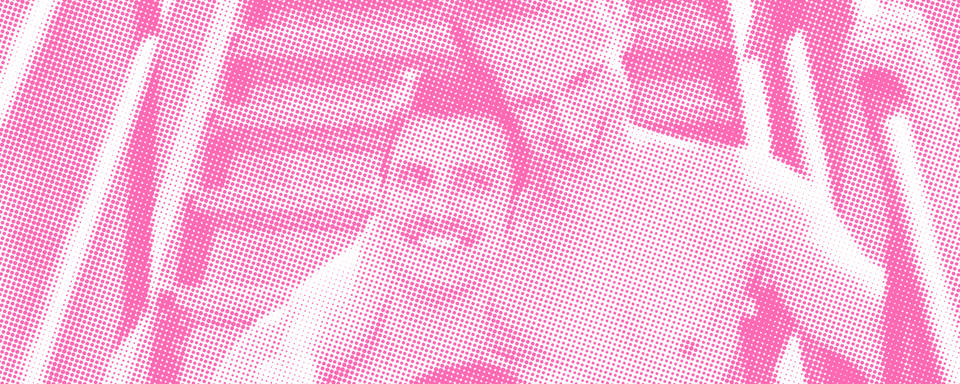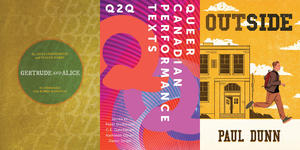
A conversation, a legacy
An interview with Nick Green on Body Politic
One of the most significant LGBTQ+ newspapers, The Body Politic, started in Toronto in 1971. The newspaper played a major role in the development of the Canadian LGBTQ+ scene, from memorable censorship battles to police raids to historic rallies and so much more. In the play Body Politic, playwright Nick Green reimagines the story of the newspaper through the memories of Phillip, one of the original founding members, now an aging journalist trying to explain to a younger lover the opportunities the journalistic force created for the future.
Below, Nick talks about why he wrote this play, and why he chose to frame it between the past and present.
Why did you decide to write this play?
I wish I could take credit for coming up with the idea for this play, but I can’t! I was actually approached with this concept by the fine folks at lemonTree Creations: Indrit Kasapi, Cole Alvis, and Jonathan Seinen. At the time, Jonathan was working on a production of The Normal Heart and had been connected with former Body Politic collective member Gerald Hannon. He’d been inspired by the work of Gerald and the publication, and knowing about my previous work theatricalizing queer history, reached out to me to see if I would be interested in working with them on this project. I didn’t even have to think about it. I have always had a very keen interest in theatre’s ability to engage communities, and saw this as a terrific opportunity to explore a significant part of our past as well as our present.
Why did you decide to frame this play largely in flashbacks and Phillip’s memories?
The past/present framing device was used as a way to imagine the events associated with The Body Politic’s history in the context of today’s conversations and debates. I wanted to be able to locate the significance of these important moments alongside both the struggles and advancements that are experienced today, which I thought could best occur in the midst of an intimate intergenerational encounter. I think that this frame gives a chance to see the ways in which issues/ideas/efforts have evolved, stayed the same, or have been queered over the years. The story of The Body Politic is a part of a community’s history, but it is not the history. The lens of the play, seen both through the one who lived it and the one who tries to understand it, allows for the historical events to be imagined and explored, but also highlights what was missing or unexamined. In the end, my hope is that a conversation is started between the past and present, and that the notion of making history is expanded.
What type of research did you have to do to write this play?
It’s a good thing that the reference library is my favourite place in Toronto, because I practically lived there for some time. I was also very lucky to be connected with the Arquives (formerly CLGA), where I was able to access people, space, and materials that enriched the work. I interviewed several original members of the collective and read a lot of the pieces that were published, as well as spent many hours in front of the microfiche going through issue after issue. The research process was fascinating. The archived issues, when reviewed in a linear way, turn into this living organism, tracking movements and events before your eyes. AIDS starts out as a rumble in the back pages, moving steadily towards the headlines where it dominates the news for years. You see community figures rise to prominence, and political movements twist and turn. It could be quite overwhelming at times, given the sheer volume, but I was very fortunate to be connected to many generous, inspiring people who could guide me, add perspective, and generally fuel my fire!
Need to know more? Get your copy of Body Politic now!



Comments